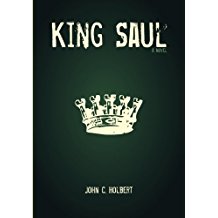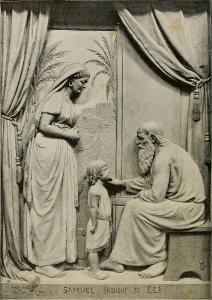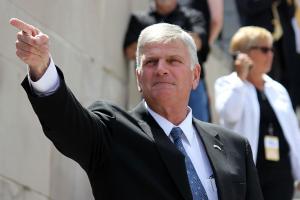(Lectionary for January 14, 2018)
 A bit over two years ago, I published a novel, King Saul. It has often been said, “Scratch an academic and find a would-be novelist just inside the skin.” It was certainly true for me. I had longed to try to write a novel ever since I was quite young, and always imagined myself interviewed on national television, asked probing questions about my writing method and just how I was able to conjure those characters with such lively and brilliant insight. It never happened, as I am sure you can surmise. My novel had few readers, perhaps fewer than one hundred, and one of those was so shocked by what I had written that she assigned her review with one star, accusing me of misrepresenting the biblical stories of Samuel, Saul, and David so egregiously as to flirt with atheism and the possible damnable misleading of young believers. Fortunately, not every reader thought that, but I admit to being deeply saddened by that one review.
A bit over two years ago, I published a novel, King Saul. It has often been said, “Scratch an academic and find a would-be novelist just inside the skin.” It was certainly true for me. I had longed to try to write a novel ever since I was quite young, and always imagined myself interviewed on national television, asked probing questions about my writing method and just how I was able to conjure those characters with such lively and brilliant insight. It never happened, as I am sure you can surmise. My novel had few readers, perhaps fewer than one hundred, and one of those was so shocked by what I had written that she assigned her review with one star, accusing me of misrepresenting the biblical stories of Samuel, Saul, and David so egregiously as to flirt with atheism and the possible damnable misleading of young believers. Fortunately, not every reader thought that, but I admit to being deeply saddened by that one review.
Still, I wrote the book because I felt quite strongly that the rich ambiguities of the ancient writer had seldom been given their full range. The synagogue and church had spent nearly three millennia attempting to flatten the characters of the grand tale of 1 and 2 Samuel into cardboard figures, or better flannel board cutouts of real people: Samuel was a great prophet of YHWH; Saul was a reprobate rejecter of YHWH’s will; David was the great and righteous king of that same YHWH. My novel set out to expose each of those characterizations as the poor and finally false portraits they actually were. These three characters are beyond doubt three of ancient history’s finest figures, but they are fine precisely because they cannot be reduced to some sort of pathetic bumper sticker picture. This is especially true of the prophet Samuel.
It is a commonplace to read the memorable call of the prophet during the early part of the Christian year as some sort of model for hearing the call of God and responding readily to that call. I assume that we are to hear in that call an echo of the call of Jesus, along with Jesus’s own call of his disciples, which should remind us, we should admit, that God calls us, too. What is good enough for Samuel is surely good enough for us!
 There is no doubt that Samuel’s call from YHWH was about as hard and demanding a call as one could conjure. Old Eli, long suffering priest of the shrine at Shiloh, has had the task of raising the boy Samuel who was dumped on him by his mother, she who had vowed that any son of hers, if God were pleased to grant one to her, would be a Nazirite, that is an anointed follower of YHWH for his entire life. The rather pathetic old man has done what he was asked to do, but the fact that his own sons were both wastrels and completely incorrigible, unworthy of any sort of religious service, suggests that Eli may not have been the best choice for surrogate father for the young Samuel. Still, it could be said that he had done his best, but when YHWH finally called the youthful Samuel to service, the aged Eli at first did not discern that it was YHWH who was doing the calling. After all, there had been few words from the God in Eli’s latter days, and Samuel hardly imagined that YHWH would choose him at the remote and tiny shrine.
There is no doubt that Samuel’s call from YHWH was about as hard and demanding a call as one could conjure. Old Eli, long suffering priest of the shrine at Shiloh, has had the task of raising the boy Samuel who was dumped on him by his mother, she who had vowed that any son of hers, if God were pleased to grant one to her, would be a Nazirite, that is an anointed follower of YHWH for his entire life. The rather pathetic old man has done what he was asked to do, but the fact that his own sons were both wastrels and completely incorrigible, unworthy of any sort of religious service, suggests that Eli may not have been the best choice for surrogate father for the young Samuel. Still, it could be said that he had done his best, but when YHWH finally called the youthful Samuel to service, the aged Eli at first did not discern that it was YHWH who was doing the calling. After all, there had been few words from the God in Eli’s latter days, and Samuel hardly imagined that YHWH would choose him at the remote and tiny shrine.
It took Eli three times to discern that Samuel’s stomping into his chamber to accuse him of shouting Samuel’s name in his sleep was in reality the young man’s experience of hearing the voice of YHWH. And such terrible words that voice uttered to the young man! His responsibility was to inform his mentor that YHWH had thoroughly rejected him from God’s work, because he had not done enough to restrain the evil of his two children (1Sam.3:13). In fact, Samuel was in effect to damn the old man and his family in toto: “the iniquity of Eli’s house shall not be expiated by sacrifice or offering forever” (1 Sam.3:14)! There will be no way that Eli or his sons will ever be forgiven, screams YHWH to the boy Samuel, and with that condemnation echoing in his ears, YHWH vanishes, leaving Samuel to do the awful deed.
“Samuel lay there until the morning: then he opened the doors of the house of YHWH. Samuel was afraid to tell the vision to Eli” (1 Sam.3:15). Samuel may have delayed his prophetic message, and he may have at first been fearful to deliver it, but after Eli demands that he tell exactly what YHWH spoke, he does so without tears or remorse. “So Samuel told him everything and hid nothing from him” (1 Sam.3:18). And, as I tried to suggest in my novel, this scene determines the remainder of Samuel’s prophetic life. He feels that he is the final conduit of YHWH’s will in the world, and he will in future never hesitate again to speak what he is certain that YHWH has spoken. And the narrator of this scene emphasizes what has been said of Samuel since his call: “As Samuel grew up, YHWH was with him and let none of his words fall to the ground” (1 Sam.3:19).
I find that way of characterizing the ongoing work of Samuel deliciously ambiguous. It could be heard as saying what the church has long wanted to hear, namely that Samuel was a thoroughly trustworthy spokesperson for God his whole life, as the storyteller claims in 1 Sam.3:20. But it could also be heard, I think, as a claim that the words of Samuel remained powerful, never touching the ground, even though not all of his words in fact were words of YHWH at all, but were rather more words of Samuel, spoken out of his own anger, his own desires, his own human struggles.
For example, when YHWH specifically demands that Samuel choose a king for Israel, as the elders of the community ask of him (1 Sam.8:4-9), YHWH reiterating that demand three times, Samuel concludes his confrontation with the elders with a curt, “Each of you go home” (1 Sam.8:22). Despite YHWH’s clear command that Samuel choose a king, he does not do so. It is not until YHWH throws Saul right into his face, that the prophet decides to make the huge warrior leader over Israel, though even then he refuses to use the title “king,” calling Saul “prince” only. This is one example of many that could be chosen to suggest that Samuel’s prophetic actions have often as much to do with what Samuel wants as it has to do with what YHWH wants. In short, Samuel in his work as prophet is as much human as he is divine spokesperson; more than once his humanity flies directly in the face of his divine call.
 But surely, this is as it should be! No human being can ever shed his/her powerful human will and desire to become purely the tool of God. We all live in our own skins, and our actions are never simple or simply directed by God’s overarching will. Anyone who claims otherwise is dangerous and is to be questioned vigorously and unrelentingly. Our recent politics have shown us again and again that persons claiming direct phone lines to God, imagining that their will and desire align perfectly with the will and desire of God, are plainly not to be trusted, no matter how exalted their positions, no matter how high their pulpits, no matter how bright their televised personalities. When the church has read these texts as if they are holding up characters as models for our behavior, it has done us a serious disservice. The person of Samuel is no different.
But surely, this is as it should be! No human being can ever shed his/her powerful human will and desire to become purely the tool of God. We all live in our own skins, and our actions are never simple or simply directed by God’s overarching will. Anyone who claims otherwise is dangerous and is to be questioned vigorously and unrelentingly. Our recent politics have shown us again and again that persons claiming direct phone lines to God, imagining that their will and desire align perfectly with the will and desire of God, are plainly not to be trusted, no matter how exalted their positions, no matter how high their pulpits, no matter how bright their televised personalities. When the church has read these texts as if they are holding up characters as models for our behavior, it has done us a serious disservice. The person of Samuel is no different.
The Bible does not say to us, “Be like this or that person.” It rather says, “You are like this or that person; now, what do you intend to do about it?” I would suggest that this axiom is even true about the one we call Christ. After all, there are multiple records in the Gospels where Jesus is less than readily loving, less than easily forgiving. He, too, is human, even if we ascribe to him the exalted title of mirror of God. The ambiguities of human action are rife in our Bibles, and equally rife in our human behaviors today. The sooner we admit and accept and relish that fact, the sooner we can live honestly with one another as the flawed humans we all are.
(Images from Wikimedia Commons)











